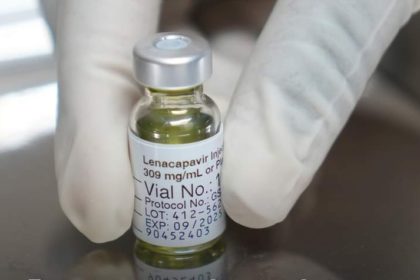By Adeyemi Adekunle
The upcoming Ondo State Governorship election, set for 16 November 2024, is shrouded in controversy and misinformation, raising alarm among pro-democracy advocates. This election marks the fifth off-cycle contest conducted by the Independent National Electoral Commission (INEC) since the 2023 general elections, but it is already mired in a cloud of disinformation that threatens voter participation and the integrity of the electoral process.
According to INEC, a total of 2,053,061 registered voters are expected to cast their ballots. Although data shows that 55,859 of the 89,777 newly registered voters have collected their Permanent Voters Cards (PVCs)—representing a promising 62.2% pickup rate—concerns remain over the overall enthusiasm for voter participation.
Experts note that despite this initial interest, significant challenges continue to restrict robust participation among voters, especially in a climate heightened by political and social tensions in the West African sub-region, which are largely characterized by recent coup outbreaks and democratic setbacks.
In a crucial move to combat these concerns, a team from the Center for Democracy and Development (CDD) in West Africa recently conducted a detailed assessment of the information environment in Ondo State.
The team’s mission centered on engaging with key stakeholders in the electoral process to gauge the landscape of misinformation and its potential impact on voters, particularly marginalized groups like women, youth, and persons with disabilities.
One of the most troubling findings from the CDD assessment is the prevailing narrative that the election is already a foregone conclusion. Many stakeholders expressed concern over the apparent lack of rigorous campaigning, with some asserting that the absence of heated competition suggests that voter engagement is unnecessary.
“There’s an eerie atmosphere of complacency,” said a political analyst based in Ondo. “People are being led to believe that their vote won’t matter, and that’s deeply concerning.”
The assessment also highlighted specific instances of identity-driven disinformation targeting various political candidates and INEC. In the days following the assessment, a particularly damaging narrative emerged regarding the geographical origins of the Resident Electoral Commissioner (REC), which sparked discussions among voters about bias and unfairness in the process.
Moreover, a viral video circulating on social media platforms like WhatsApp has claimed that the incumbent governor was involved in a scandalous altercation in London. This allegation gained significant traction despite being unverified, largely due to prevailing biases and perceptions surrounding the governor’s personal life.
Respondents from the CDD assessment noted that the absence of the First Lady for an extended period lent the story undue credibility, resulting in widespread shares and resistance to fact-checking efforts that sought to debunk the claims.
“This kind of misinformation not only misguides the electorate but also obscures the true issues at stake in the election,” stressed a representative from the CDD. “Such narratives can deter people from participating, believing that their voices may not count in a pre-decided political landscape.”
The challenge of ensuring an informed electorate is more critical than ever, especially as democratic principles are tested by disinformation campaigns. Pro-democracy advocates stress that maintaining the integrity of the information ecosystem is essential for protecting electoral integrity and fostering active citizen participation.
As the election approaches, it remains imperative for civil society organizations, the media, and political actors to collaborate in demystifying misleading claims and promoting factual information.
With the inherent risks posed by disinformation, not just for the upcoming Ondo State governorship election but for the broader democratic landscape, the call for vigilance has never been more urgent.
As Ondo State gears up for this crucial electoral exercise, stakeholders must commit to combating misinformation and encouraging informed participation to ensure that the electorate can genuinely exercise their democratic rights, free from the shadows of disinformation.




